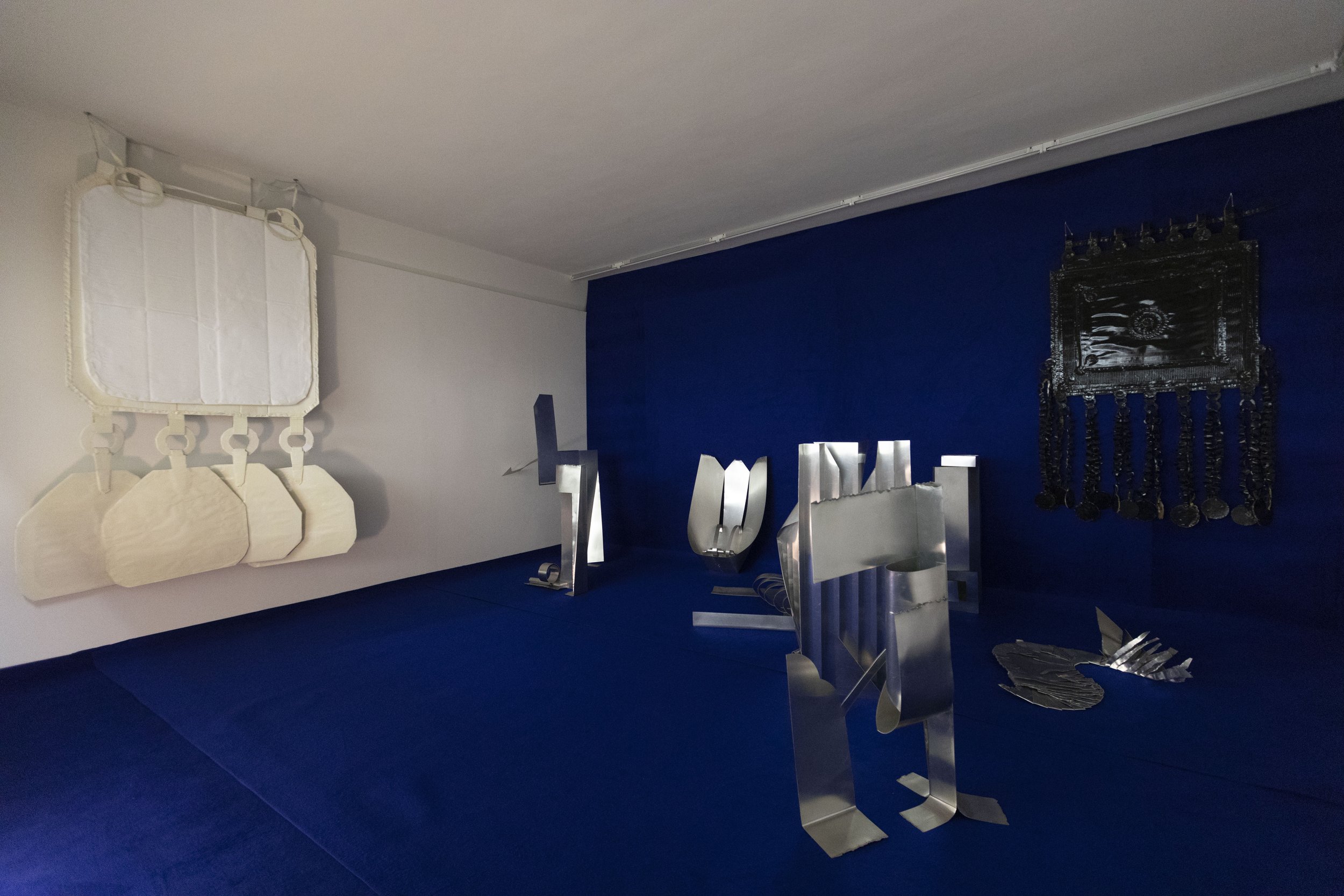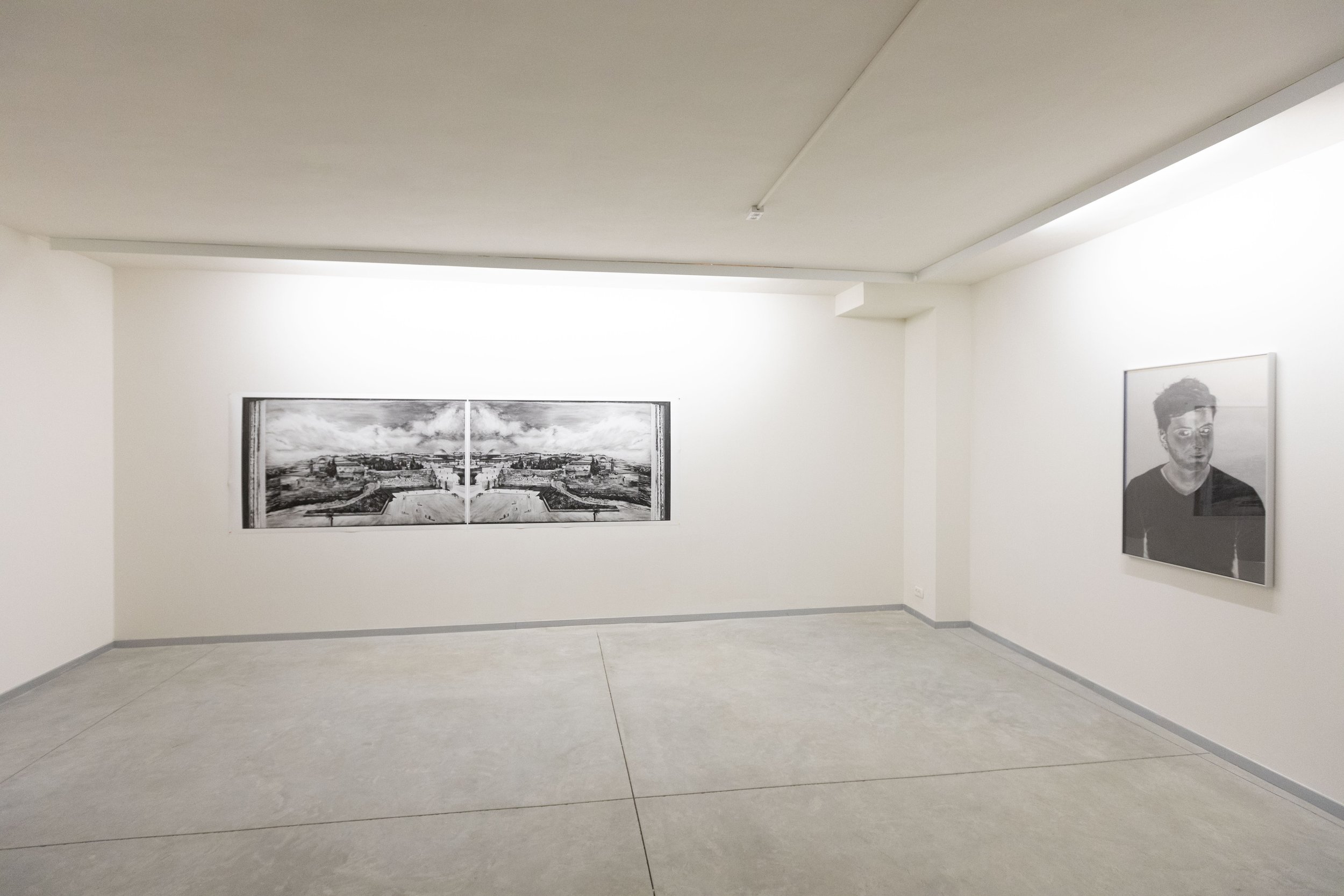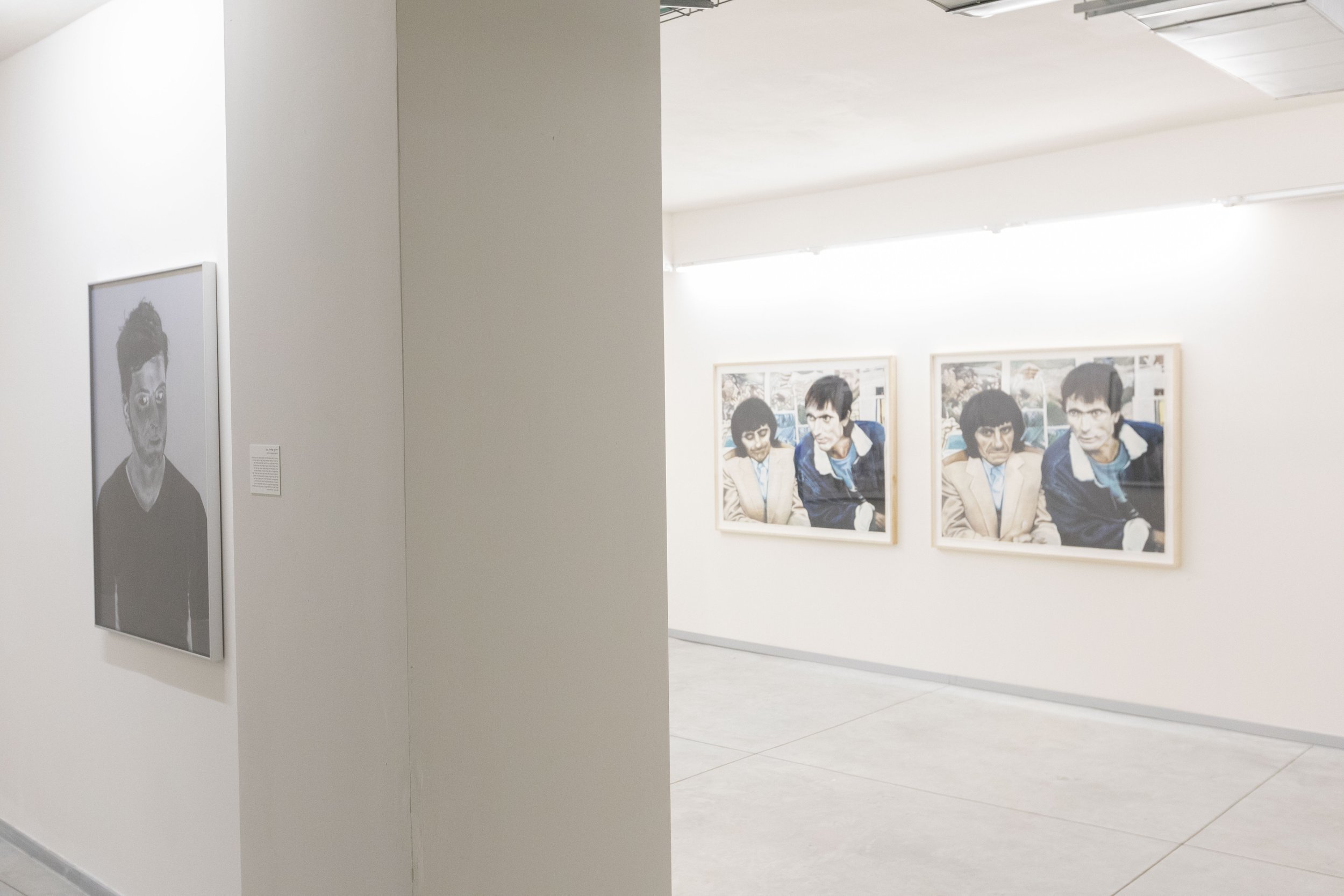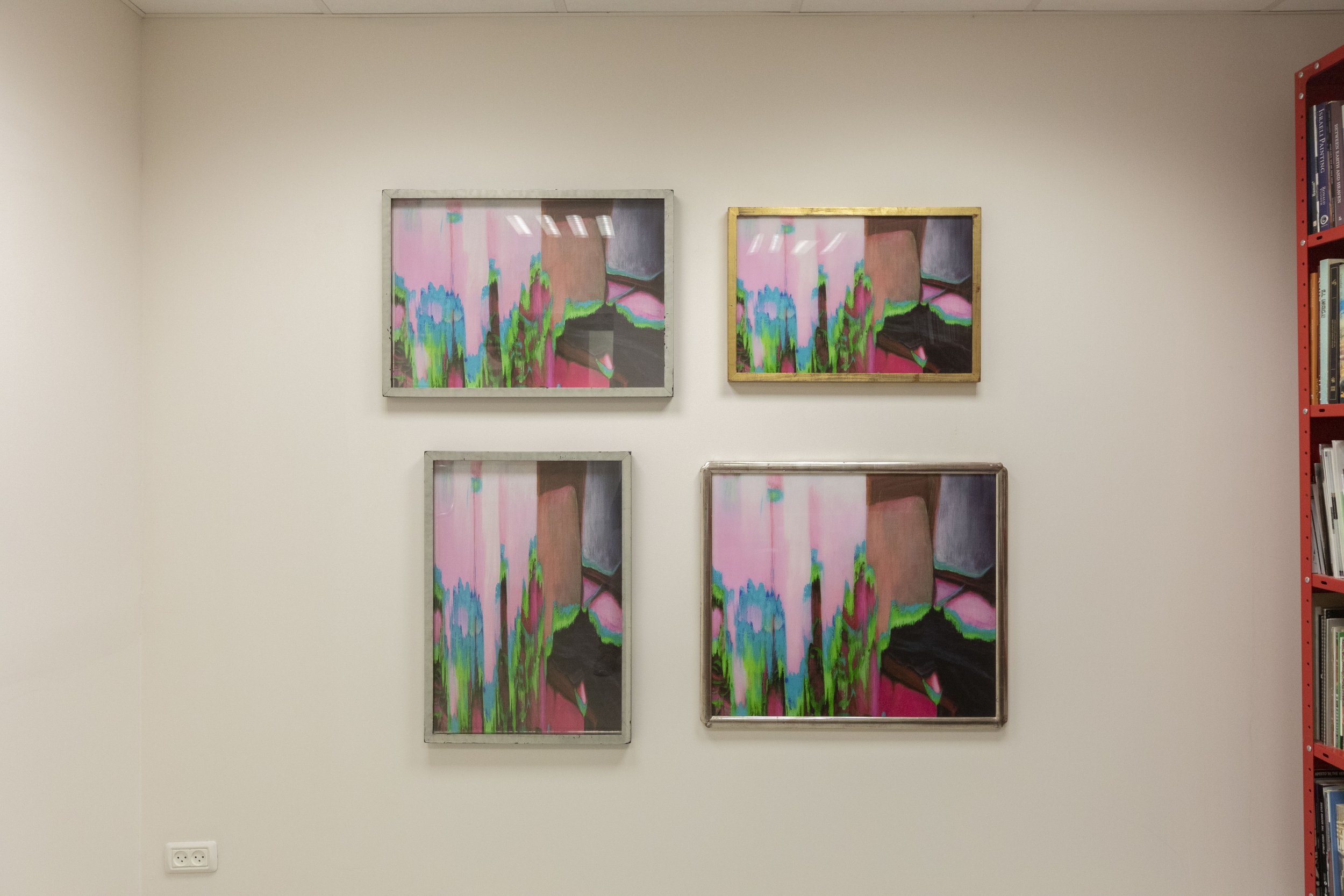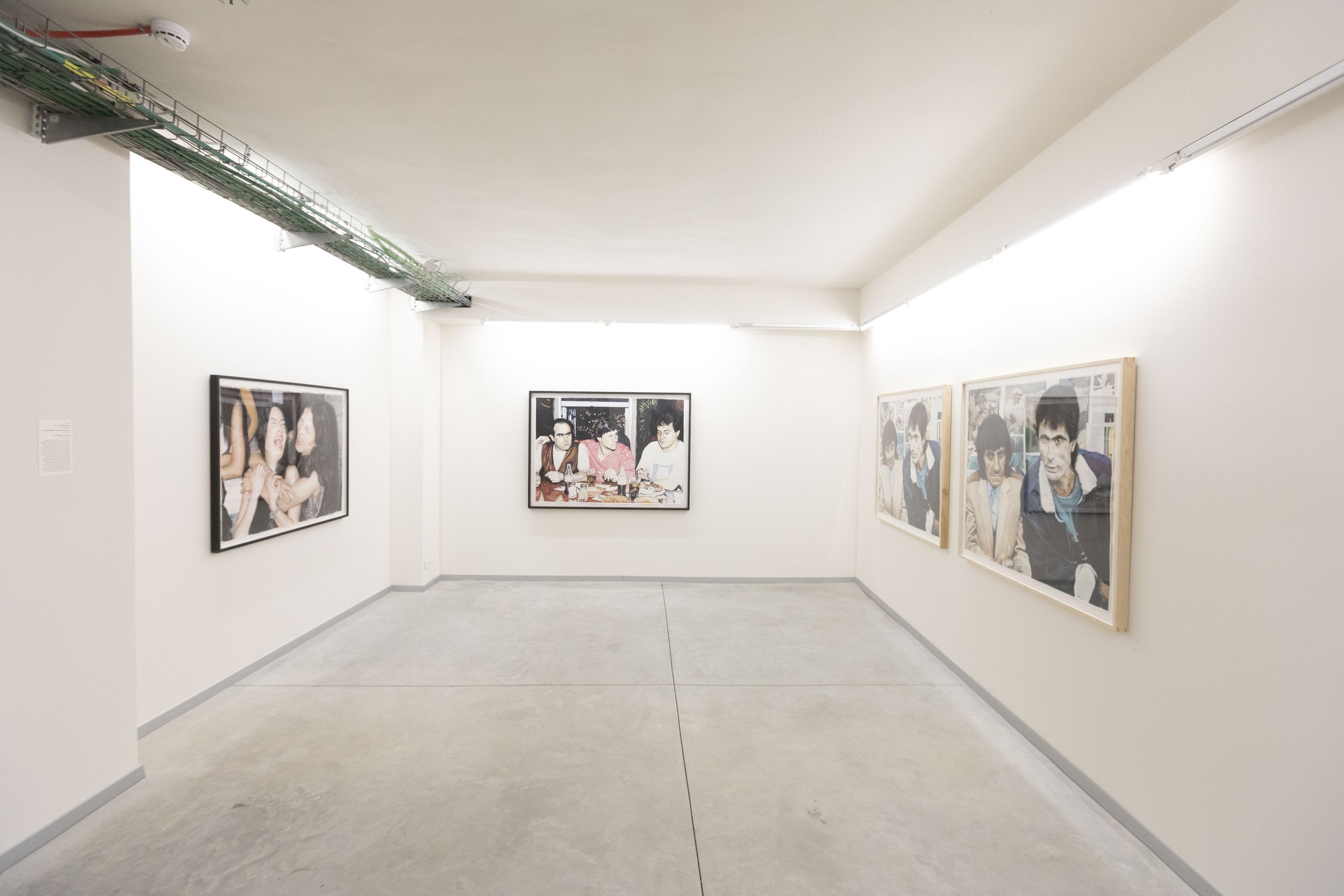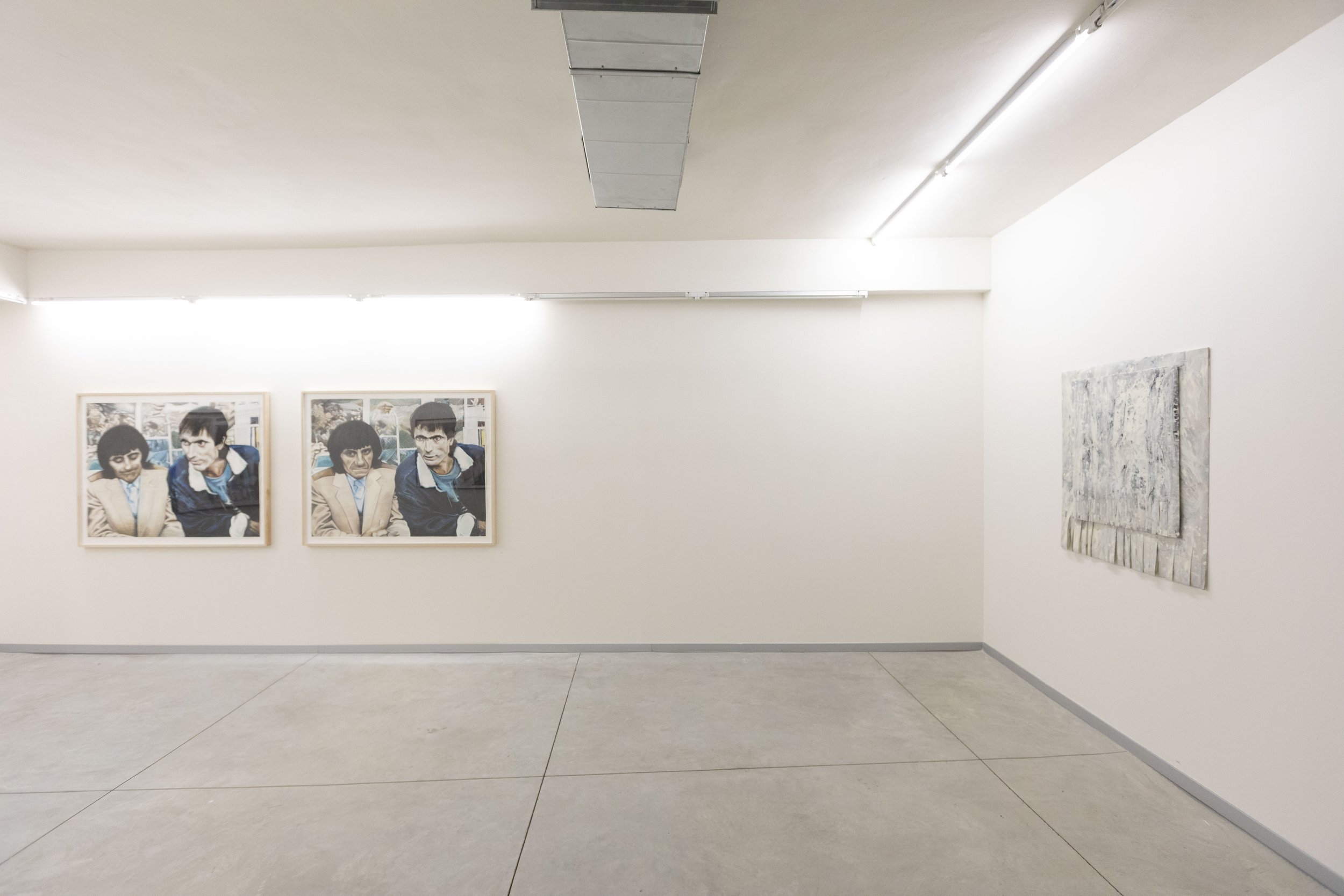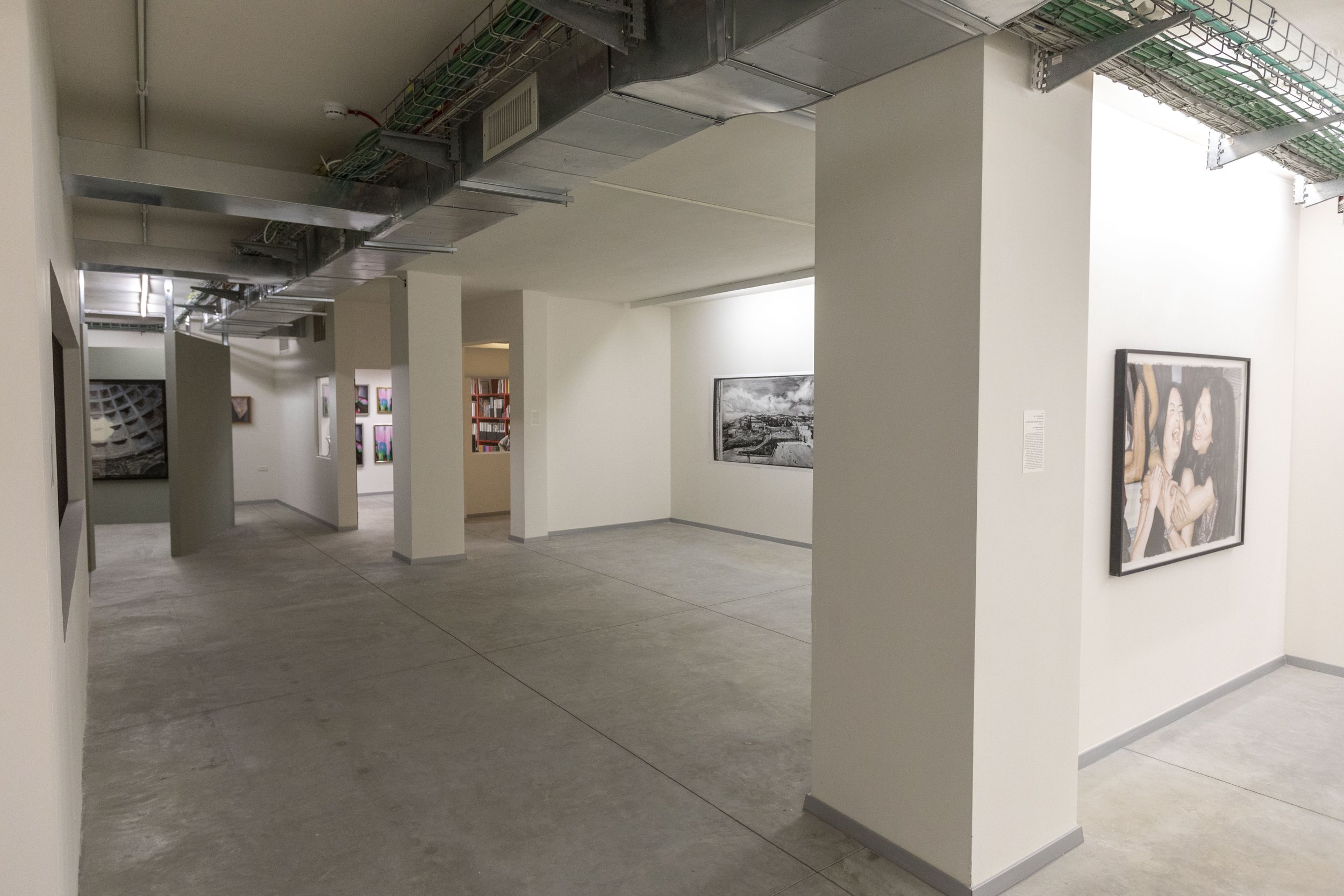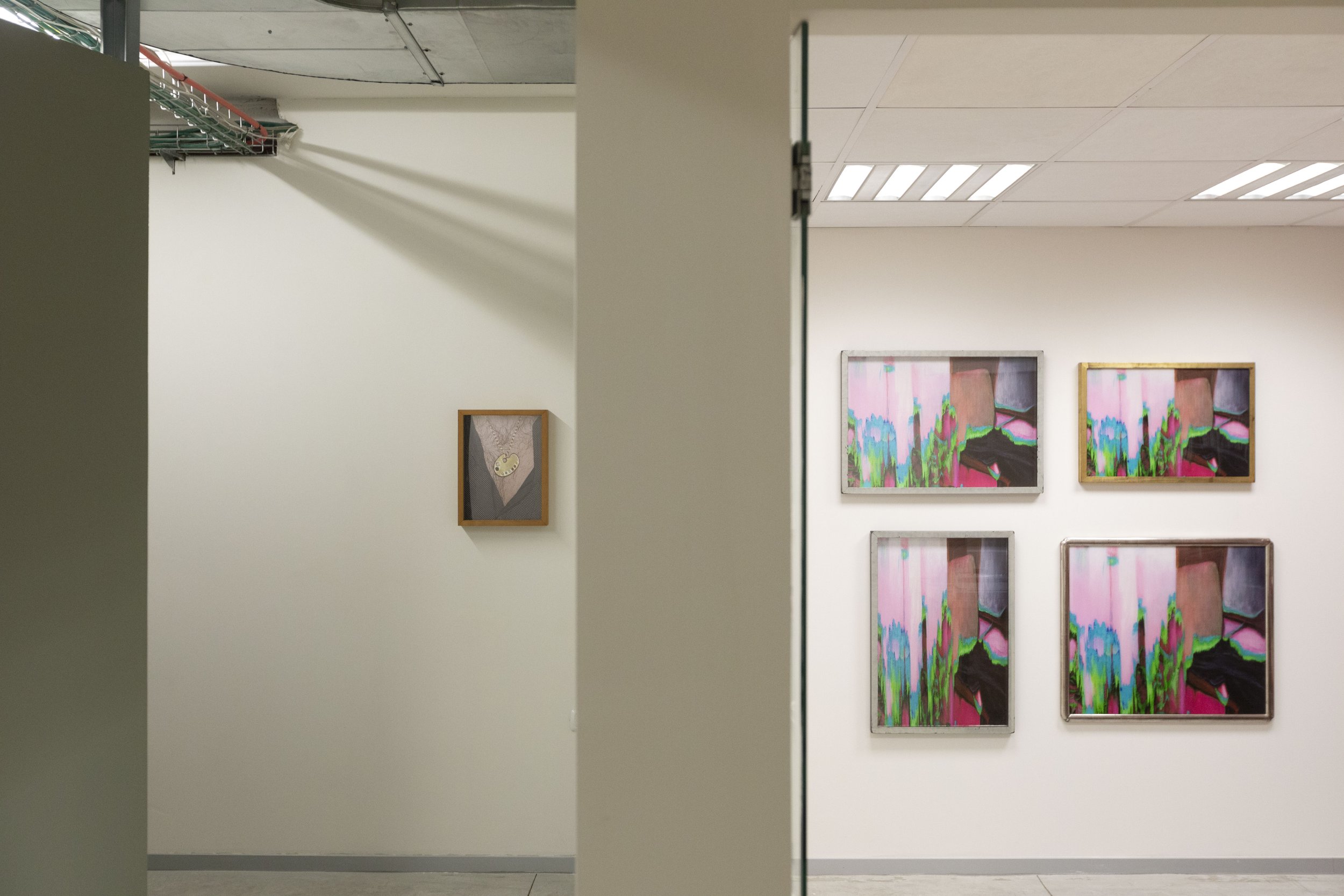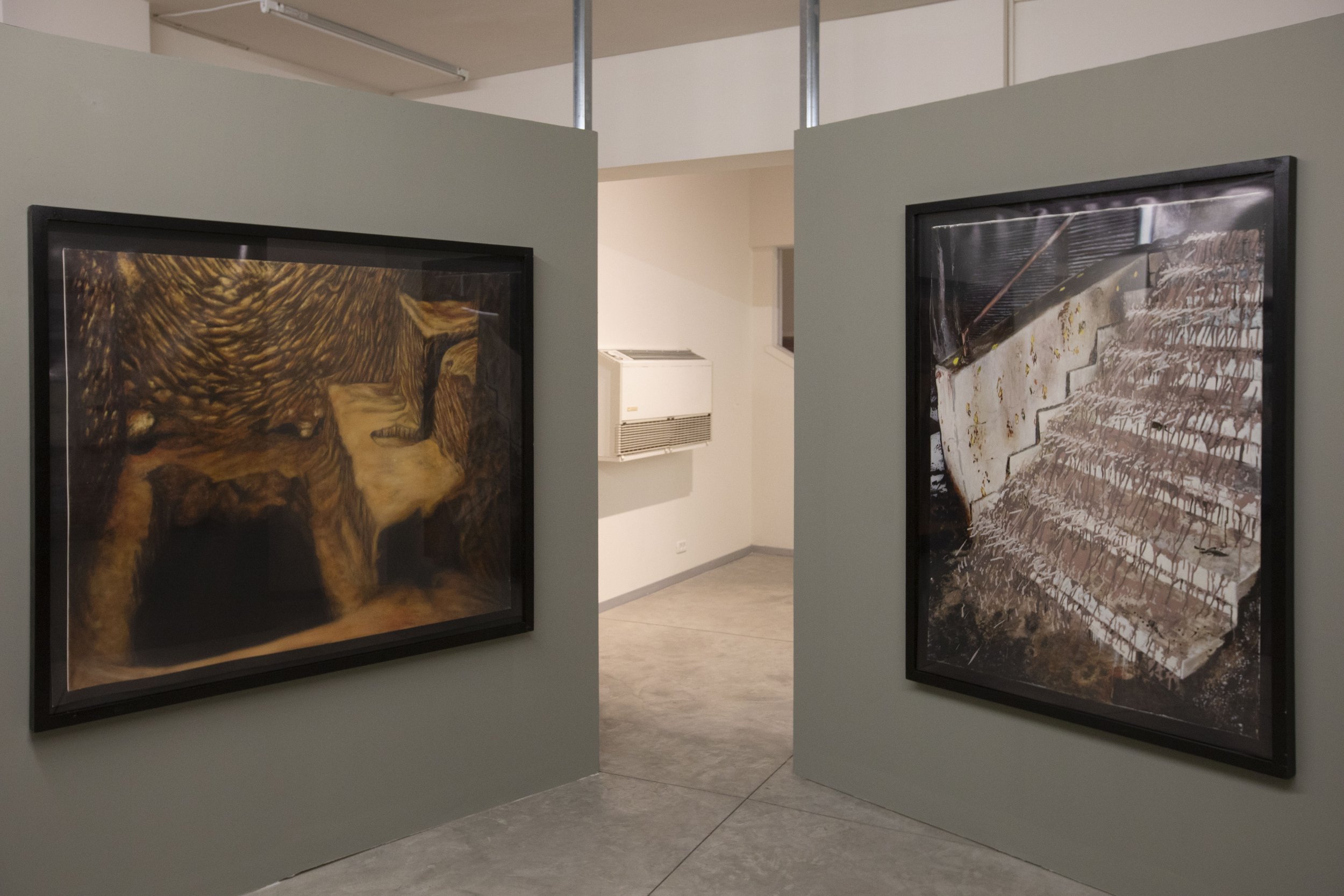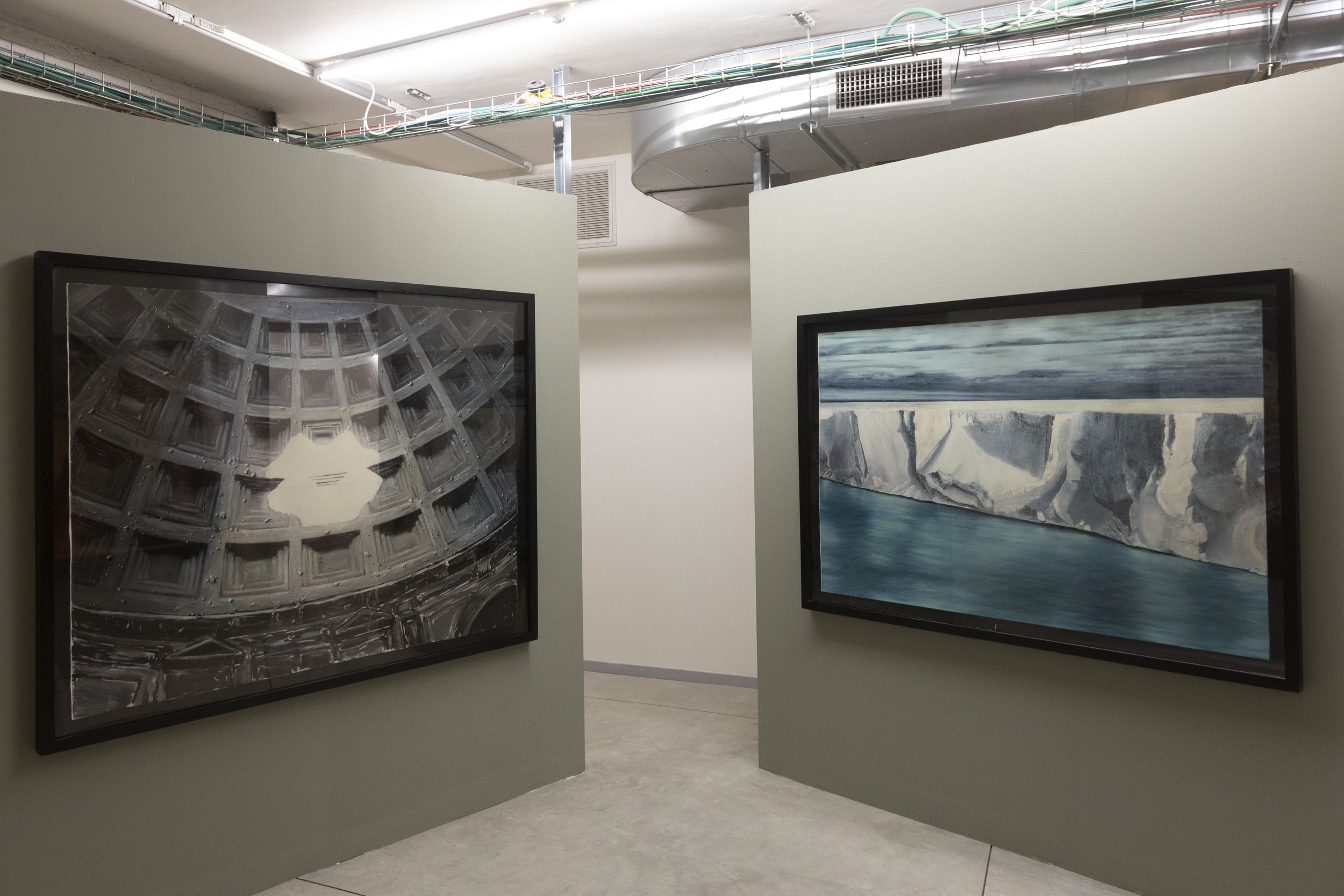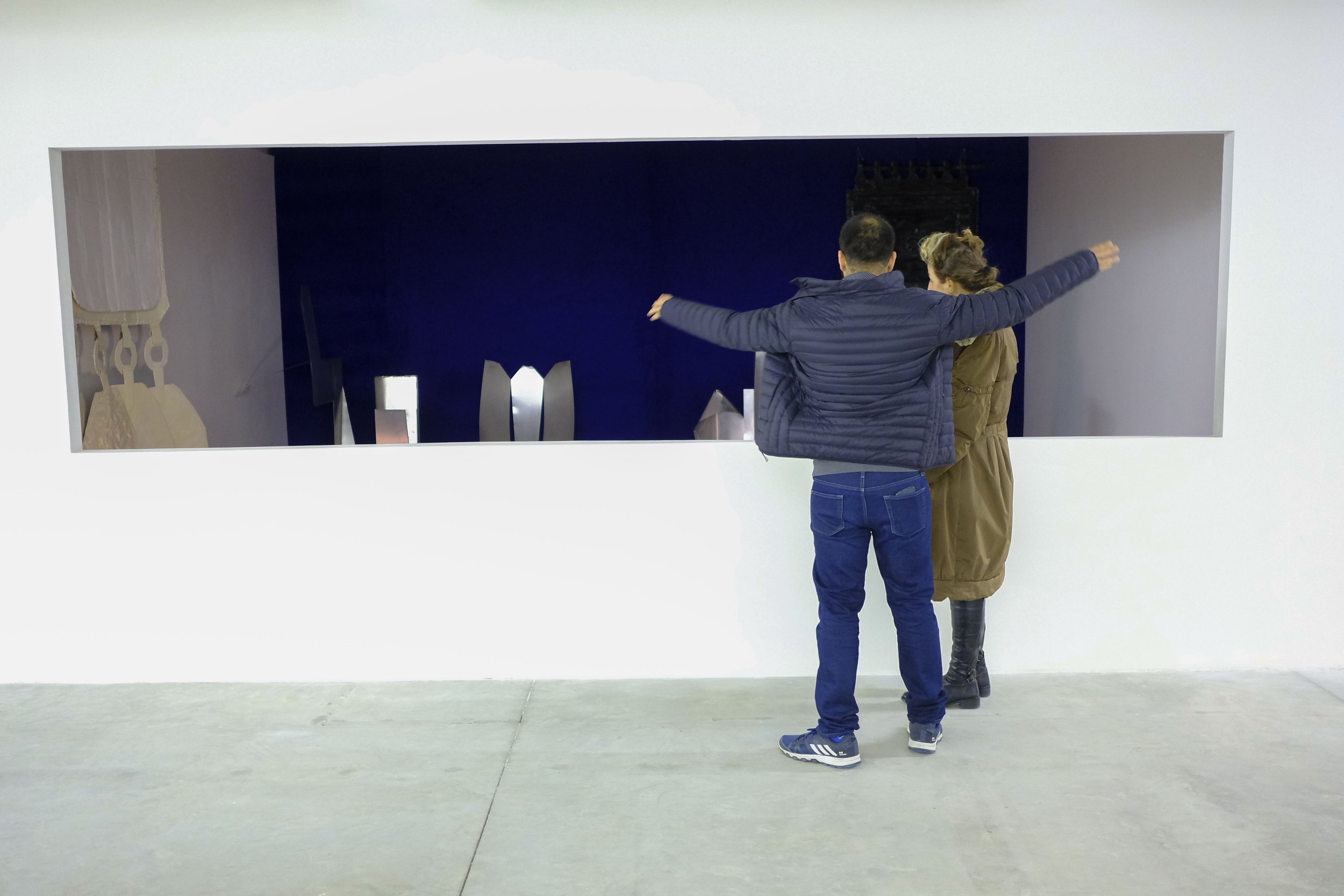Lost and Found (2019)
Solo exhibition at Minus 1 Gallery; from Haaretz Collection
Curator: Efrat Livny
This exhibition was accompanied by a catalog with contributions by Albert Suissa and Efrat Livny
When Eli Petel was appointed head of the Fine Art Department at the Bezalel Academy of Arts and Design, in 2011, he decided not to mount solo shows of his work during his tenure. His last solo exhibition in Israel took place in 2009. This year, his final year in the post, he held a solo exhibition in Los Angeles, his first since his decision seven years ago, and it is to be hoped that in the near future he will be exhibiting works again in Israel.
Just before that happens, the present solo exhibition is showcasing a selection of his earlier works, selected from the Haaretz collection. The earliest work is from 2001; the latest from 2012. Some of the works are very closely identified with Petel’s oeuvre; others are less known and have rarely been displayed. For the young, new audience, this is a first opportunity to encounter the artist’s work; for those familiar with it, it is an opportunity to become reacquainted.
The works in this show have never been exhibited together. They are taken from various past exhibitions – “Eli Petel – Installation” (2001), “Sgula” (2005), “Original Nature” (2006), “A Day’s Ending” (2006) and “Nine in the Dark” (2009). But despite the time differences, the connection between them is immediate and compelling – perhaps because, “In all of these works and exhibitions he deals with the thorniest question of all: What will Mizrahi or ‘other’ art, independent and self-sufficing, be – beyond the theme of the Mizrahi struggle?” as Albert Suissa suggests in an article he wrote for the exhibition catalog.
Suissa, who is well aware of the conventional interpretations of Petel’s work – which place him squarely in the heart of tension and continuum between art and Jewishness and Mizrahiness, between past and present and future, between “high” and “low,” and between readymade and sublime – sheds new light by placing at its base the ethical act. “Petel’s readymade,” Suissa writes, “derives its genealogy precisely from the term objet trouvé, in its original meaning in French, which splits into the double meaning ‘lost’ and ‘found’; in contrast to Marcel Duchamp’s readymade, which erases the subjugation of every object in the world to the loss of the one and the finding of the other, under the auspices of the aesthetic question.
"But Petel goes further and charges the found object with the Jewish imperative of ‘restoration of lost property,’ which no longer addresses the lost item’s owner as hinted in ‘objet trouvé,’ but makes its appeal to the honest finder’s sense of responsibility and his conscience in regard to the other’s lost object.”


